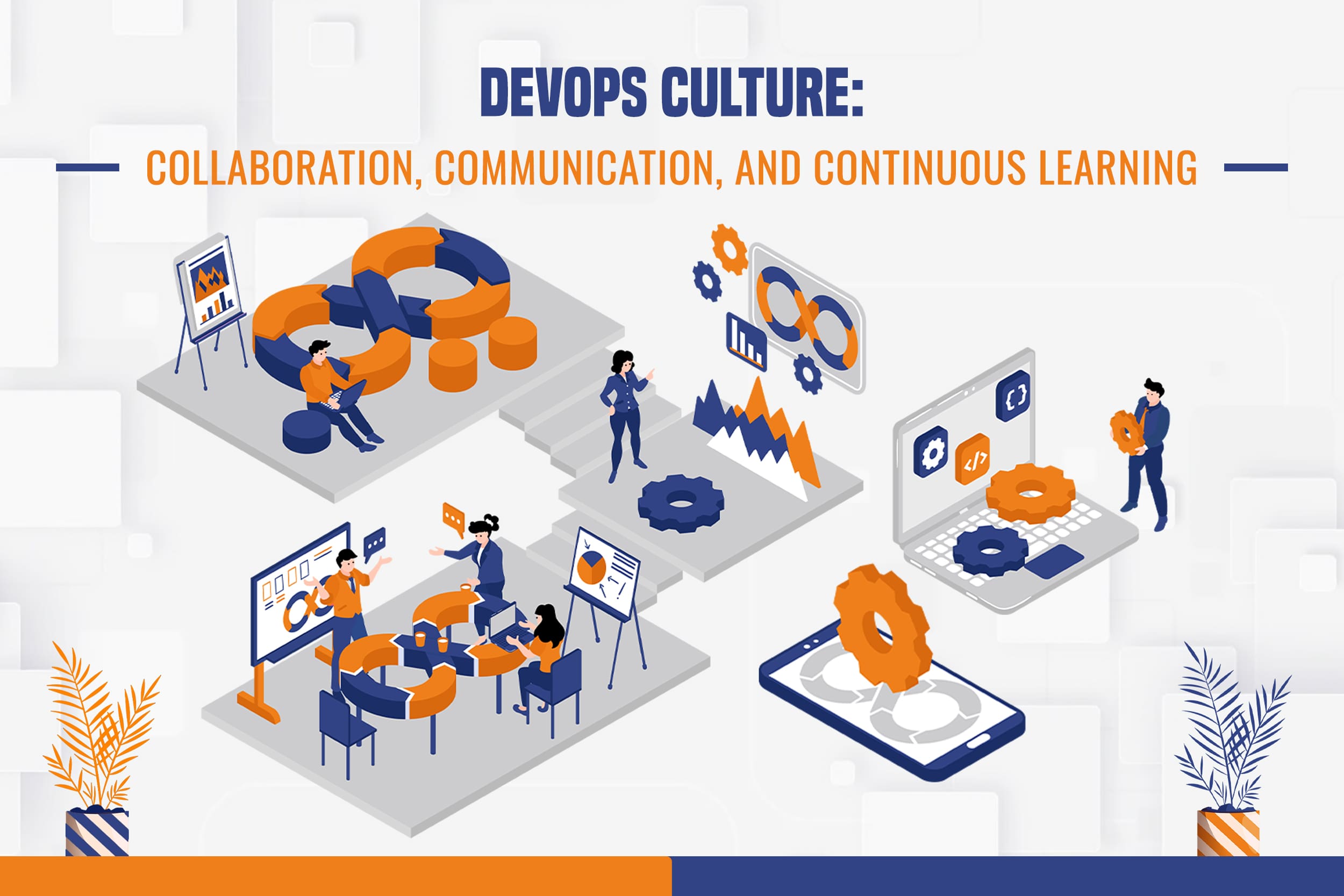
DevOps Culture: Collaboration, Communication, and Continuous Learning
In the rapidly evolving world of software development and IT operations, organizations are continually seeking ways to enhance collaboration, improve communication, and foster a culture of continuous learning. DevOps, a popular approach that combines software development (Dev) and IT operations (Ops), offers a compelling solution to these challenges. By embracing DevOps culture, organizations can streamline their processes, optimize efficiency, and achieve better outcomes. This article explores the key elements of DevOps culture and its significance in today's technological landscape.
Understanding DevOps Culture
DevOps culture includes a collection of values, practices, and principles designed to connect development teams and operations teams.It emphasizes collaboration, open communication, and shared responsibility for delivering high-quality software products. DevOps culture promotes a holistic approach to software development and operations, breaking down traditional silos and fostering a sense of collective ownership.
Key Principles of DevOps Culture
Collaboration:
Collaboration lies at the heart of DevOps culture, serving as the driving force behind its success. It entails the harmonious integration of individuals from diverse teams, including developers, operations engineers, and quality assurance professionals, who come together to collectively work towards shared goals. Through cross-functional collaboration, DevOps culture fosters an environment where knowledge sharing and Technical Learning become a norm, leading to enhanced innovation and adaptability.
By combining their expertise, team members can efficiently respond to evolving requirements, leveraging a wide range of perspectives and insights. This collaborative approach sparks creativity, encourages the exchange of ideas, and empowers individuals to collectively contribute to the continuous improvement of products and processes within the organization.
Communication:
Communication plays a pivotal role in fostering a thriving DevOps culture. It goes beyond mere information exchange, encompassing the creation of an inclusive environment where team members can freely express ideas, provide valuable feedback, and address concerns. Clear and transparent communication acts as the glue that keeps teams aligned, enabling them to resolve conflicts efficiently and make well-informed decisions.
In today's digital age, various communication tools such as chat platforms, video conferencing, and collaboration software serve as invaluable assets, facilitating seamless communication even within geographically dispersed teams. By nurturing effective communication practices, DevOps organizations empower their teams to collaborate effectively, exchange knowledge effortlessly, and drive continuous improvement across the entire software development and operations lifecycle.
Continuous Learning:
Continuous learning lies at the core of DevOps culture, recognizing its pivotal role in driving growth and innovation. DevOps organizations prioritize the acquisition of new skills, the exploration of emerging technologies, and staying abreast of industry trends. By fostering a learning mindset, they enable individuals to adapt to evolving business needs and enhance their technical capabilities.
Embracing a culture of continuous learning with the help of effective Technical Program Management Training empowers organizations to embrace change, experiment with novel approaches, and challenge the status quo. It fuels a spirit of innovation, encourages creative problem-solving, and enables teams to deliver cutting-edge solutions. In this dynamic landscape, DevOps culture champions the pursuit of knowledge, empowering individuals to embrace lifelong learning and contribute to the success of their organizations.
Benefits of Embracing DevOps Culture
Increased Efficiency and Productivity:
DevOps culture promotes streamlined processes, eliminating bottlenecks and reducing waste. By automating repetitive tasks, teams can focus on value-adding activities, leading to improved efficiency and productivity.
Faster Time-to-Market:
With enhanced collaboration and streamlined processes, DevOps culture enables organizations to deliver software faster. Continuous integration and delivery practices facilitate rapid and frequent releases, allowing businesses to respond swiftly to market demands.
Improved Quality and Reliability:
DevOps culture emphasizes quality throughout the software development lifecycle. Continuous testing, automated deployments, and robust monitoring practices ensure that software products are reliable, stable, and meet customer expectations.
Implementing DevOps Culture in Organizations
Breaking Down Silos:
Organizations should encourage cross-functional collaboration by breaking down silos and fostering a sense of shared responsibility. This can be achieved through joint planning sessions, Technical Learning, integrated teams, and shared metrics that align development and operations objectives.
Automation and Tooling:
Automation plays a crucial role in DevOps culture. Organizations should leverage automation tools to streamline processes, automate testing, provisioning, and deployment, and reduce manual efforts.This enables teams to concentrate on innovation and strategic initiatives.
Continuous Integration and Delivery:
Implementing continuous integration and delivery practices enables organizations to achieve faster feedback cycles, minimize integration issues, and deliver software in a more reliable and efficient manner. This involves automated testing, version control, and frequent integration of code changes.
Monitoring and Feedback Loops:
DevOps culture relies on continuous monitoring and feedback loops to ensure early detection of issues and prompt resolution. Organizations should invest in robust monitoring tools, establish feedback mechanisms, and create a culture of proactive problem-solving.
Overcoming Challenges in Adopting DevOps Culture
While DevOps culture brings numerous benefits, its adoption can present challenges. Resistance to change, cultural barriers, and lack of awareness are common obstacles. To overcome these challenges, organizations should prioritize executive support, provide proper Corporate Technical Training and education, and create a safe environment for experimentation and learning. Collaboration across teams and departments is key to successful implementation.
Final Words
DevOps culture, driven by collaboration, communication, and continuous learning, is transforming the software development and operations landscape. By embracing this culture, organizations can break down silos, enhance productivity, and deliver high-quality software products efficiently. Implementing DevOps practices and fostering a learning mindset and encouraging more Technical Learning and skill development enable organizations to stay competitive in a fast-paced, technology-driven world.
